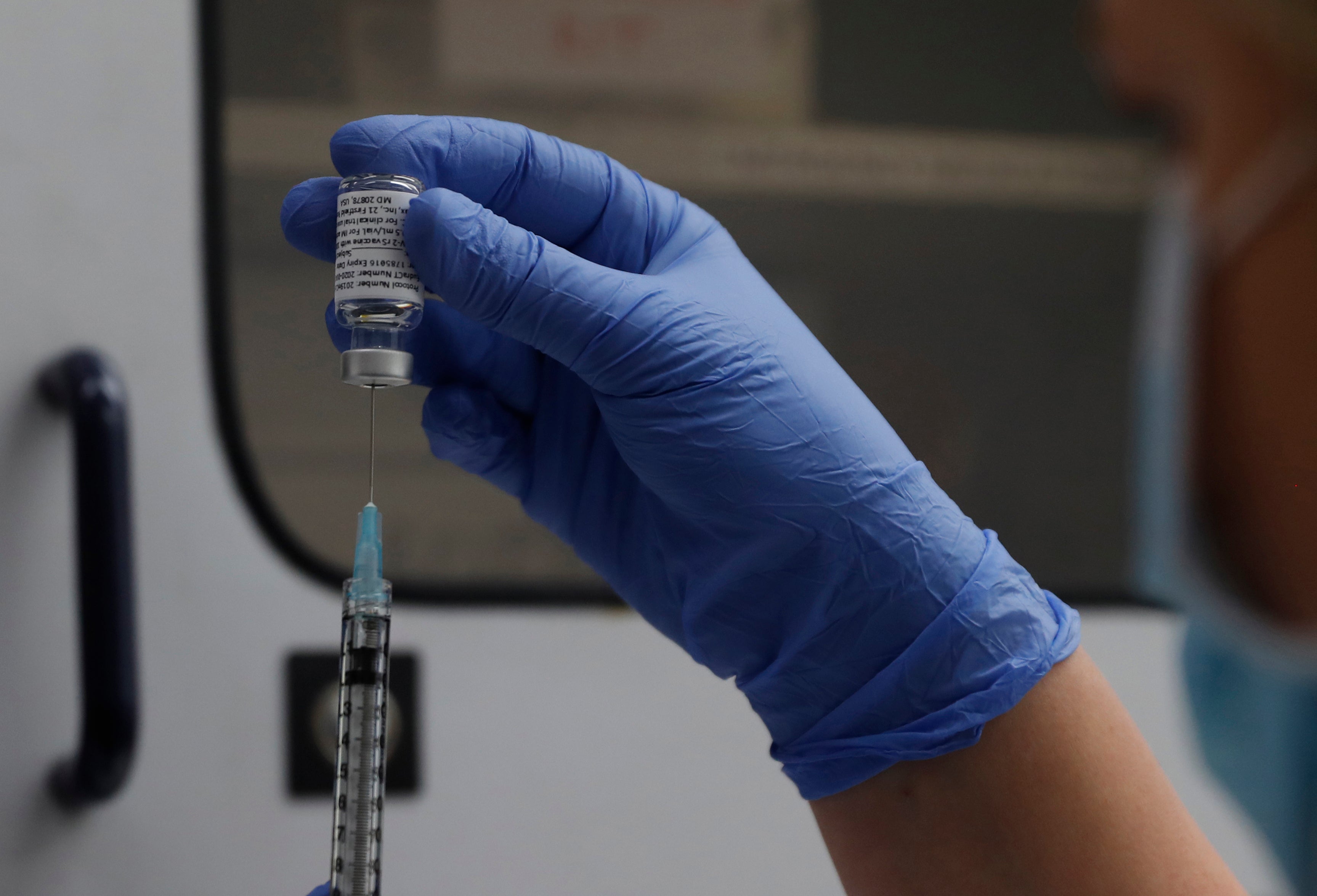Novavax Covid vaccine becomes fourth to receive FDA approval
The protein-based vaccine still needs to be approved by the CDC before it can start to be administered
Your support helps us to tell the story
From reproductive rights to climate change to Big Tech, The Independent is on the ground when the story is developing. Whether it's investigating the financials of Elon Musk's pro-Trump PAC or producing our latest documentary, 'The A Word', which shines a light on the American women fighting for reproductive rights, we know how important it is to parse out the facts from the messaging.
At such a critical moment in US history, we need reporters on the ground. Your donation allows us to keep sending journalists to speak to both sides of the story.
The Independent is trusted by Americans across the entire political spectrum. And unlike many other quality news outlets, we choose not to lock Americans out of our reporting and analysis with paywalls. We believe quality journalism should be available to everyone, paid for by those who can afford it.
Your support makes all the difference.The Food and Drug Administration authorised the use of Novavax Covid-19 vaccine for adults on Wednesday.
The protein-based vaccine offers an alternative to the mRNA shots already available from Pfizer-BioNTech and Moderna.
The vaccine now goes before the Centers for Disease Control and Prevention advisory committee who have to sign it off before it can be administered at pharmacies and clinics.
“I encourage anyone who is eligible for, but has not yet received, a Covid-19 vaccine to consider doing so,” FDA Commissioner Dr Robert Califf said in a statement.
The US Government paid Novavax $1.8bn to develop the vaccine in 2020 as part of Operation Warp Speed.
According to CDC figures, 77 per cent of US adults are fully vaccinated. However, some 27 million are yet to receive a single dose.
The CDC hopes the Novavax vaccine will appeal to those wary of mRNA technology, as it uses more conventional protein-based technology that has been used in hepatitis B and HPV vaccines for decades.
The Novavax vaccine is offered in two doses, 21 days apart.

The emergency approval comes at a time when Covid-19 cases are soaring around the world.
“Today’s authorisation offers adults in the United States who have not yet received a Covid-19 vaccine another option that meets the FDA’s rigorous standards for safety, effectiveness and manufacturing quality needed to support emergency use authorisation,” Dr Califf added.
Novavax chief executive Stanley Erck said he expected the vaccine would be approved for children quickly.
The FDA is evaluating it for children as young as 12, Mr Erck said.
Novavax also has submitted data on booster doses, including “mix-and-match” use in people who’d earlier received Pfizer or Moderna vaccinations.
The Biden administration has bought 3.2 million Novavax doses so far, and Mr Erck expected vaccinations will begin later this month.
How do protein-based vaccines work?
Traditional vaccines contain an active component to generate an immune response, usually tiny fragments of the disease-causing organism in the form of a protein, as outlined by the World Health Organization.
They also contain preservatives and stabilisers such as sugars and amino acids, gelatin, or proteins.
Surfactants, used in foods like ice cream, keep the ingredients together while residuals from the manufacturing process, like egg proteins, yeast or antibiotics, can be found in trace amounts.
Vaccines from Pfizer and Moderna were created synthetically using messenger Ribonucleic acid (or mRNA). RNA and DNA (Deoxyribonucleic) are nucleic acids that carry genetic instructions for creating life.
Rather than injecting an organic version of the virus to generate an immune response, mRNA contains snippets of the coronavirus spike protein’s genetic code that tells the body’s cells to produce a small facsimile of that spike protein, which kickstarts the immune system to produce antibodies.
Associated Press contributed to this report



Join our commenting forum
Join thought-provoking conversations, follow other Independent readers and see their replies
0Comments